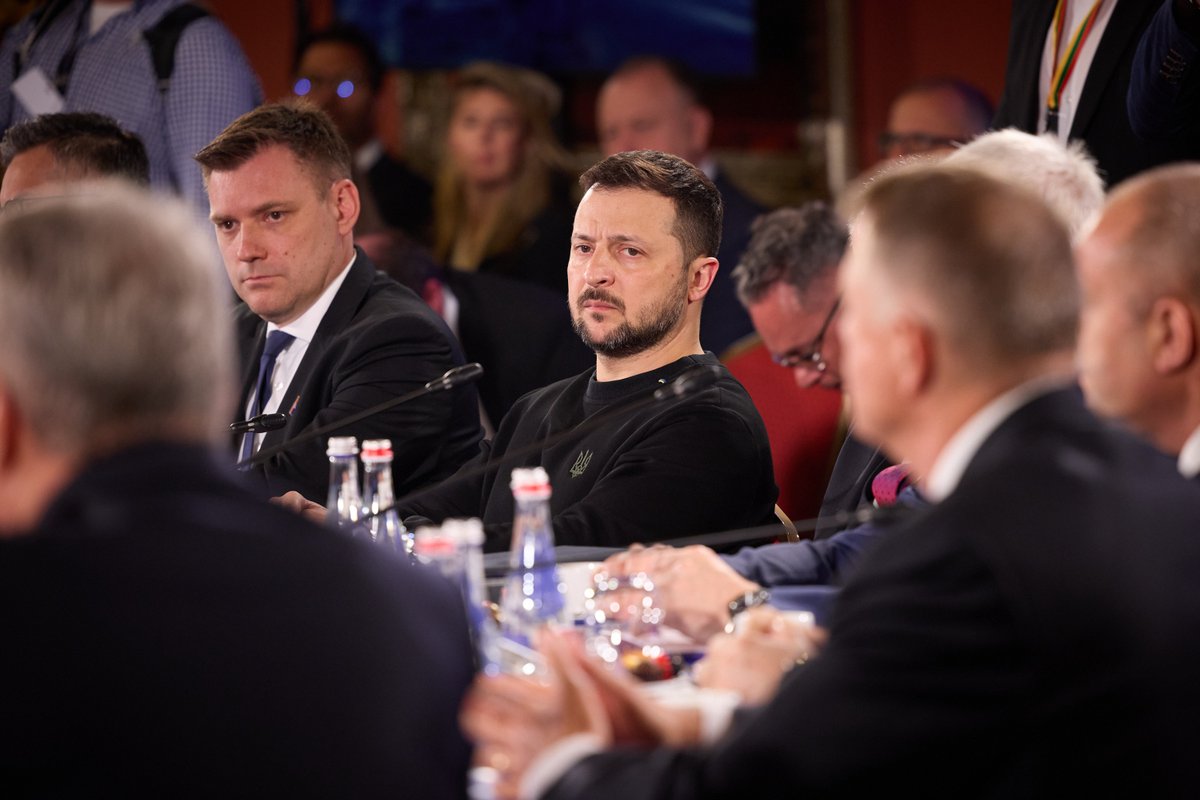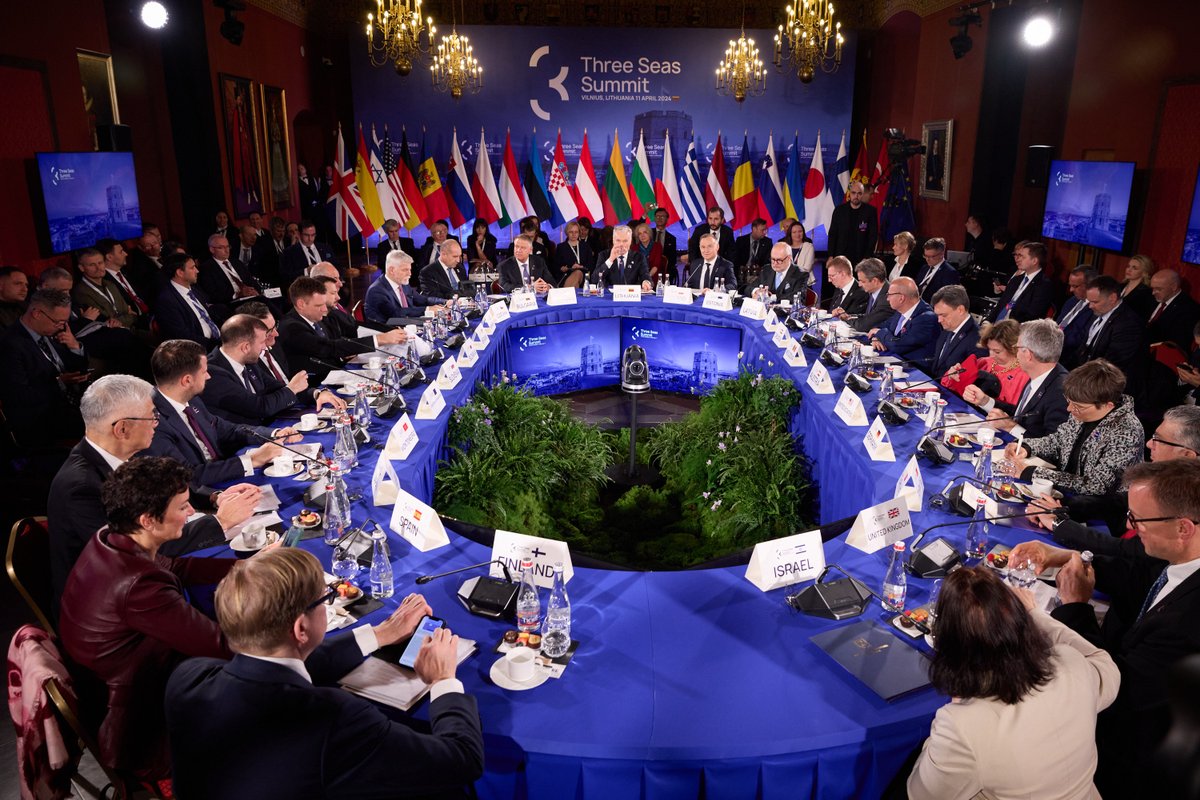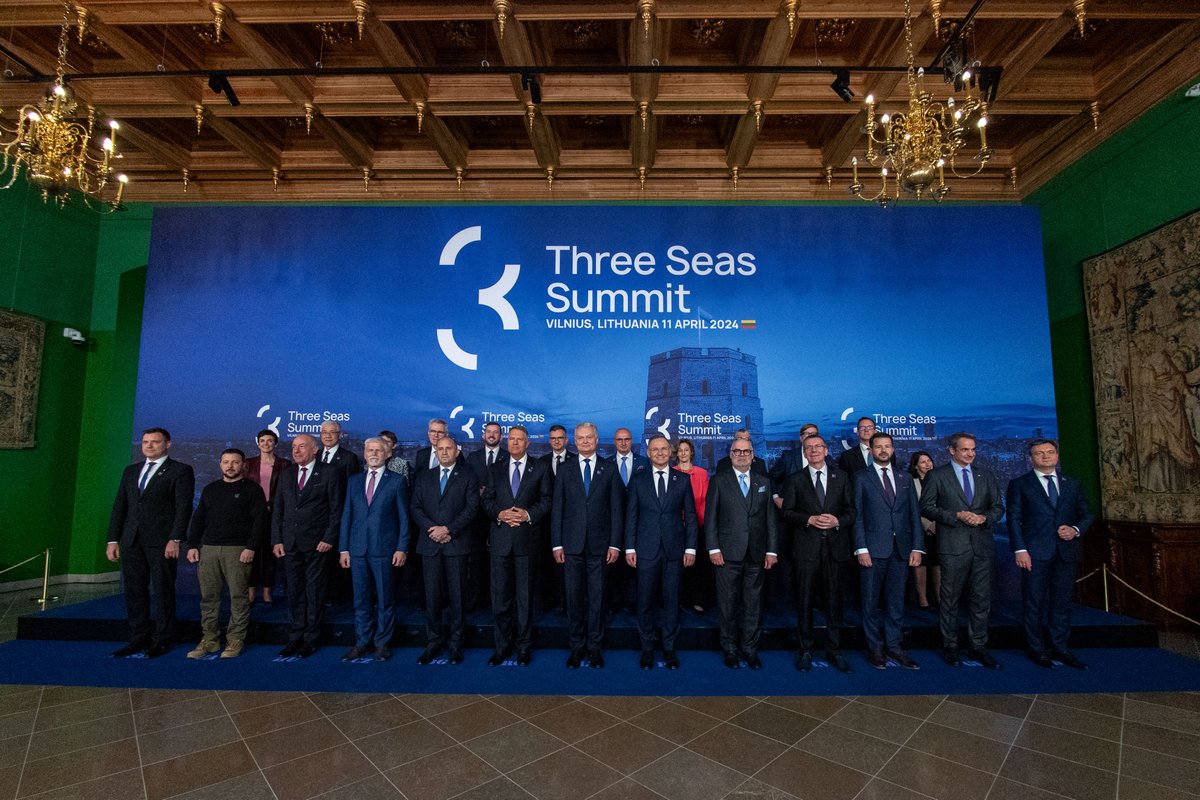I addressed the Three Seas Summit, emphasising the urgent need to strengthen Ukrainian air defense—with real action, not just words.
To ensure that Russian missiles do not fly over Vilnius, Warsaw, or Chisinau, they should finally not fly over Odesa and Kharkiv.
A thread🧵



To ensure that Russian missiles do not fly over Vilnius, Warsaw, or Chisinau, they should finally not fly over Odesa and Kharkiv.
A thread🧵



Last night, Russian terrorists struck again at Ukraine. It was a combined strike—missiles and Iranian attack drones with trajectories specifically designed to maximize damage to our critical infrastructure.
Russian strikes ranged from Kharkiv and Kyiv to Odesa and Lviv. One of the Russian terrorists' targets was close to the Polish border. Our rescuers, power engineers, and repair teams have been working throughout the day to eliminate the consequences of the attack.
This is already routine for our region—Russian strikes, such as this night’s, and our appeals to strengthen Ukrainian air defense. Missiles are striking every day, and every day we hear that Ukraine will receive new air defense systems.
Every day, Russian terrorists cut off power to Kharkiv and other cities, and every day we hear that new aid is coming soon. The reality must finally match the words, and Russian terror’s real losses must be ensured.
Just like Ukrainians expect decisions to support our defense, Putin sees not only his opportunity to continue this war, he sees more—this is a temptation for him to expand his aggression and to prepare the potential for geographically wider strikes.
All of Russia’s neighboring states and every nation whose lives may be within the range of Russian aircraft and missiles are in danger. Each of you can see how Russian propagandists are fueling hatred against your countries.
In Russia, they have already reached the point where they are even accusing Kazakhstan of their own criminal misconduct that led to the disaster with the dam breach and the flooding of a large area. They already consider Kazakhstan a potential enemy.
Russian-controlled hatred precedes Russia’s guided aerial bombs, missiles, and "Shahed" drones. Each of Russia's neighbors is a target, just like Ukraine. That is why we must multiply our joint efforts to ensure common security.
First, Russia's neighbors must make every effort on their borders and in communication with partners to block the supply of anything that can be used in military production to Putin. Chips, tools, raw materials, and technology. Cooperation with Russia must be toxic for everyone.
Second, advocating for assistance to Ukraine now means advocating for every country's own security in our region. I thank all of you who are in contact with other partners and are using all means of diplomacy, media, and political work to promote military aid for our soldiers.
Working with the US is fundamentally important. The alliance is being tested here—in defense against the existing manifestations of Russian terror. To ensure that Russian missiles are not over Vilnius, Warsaw, or Chisinau, they finally should not be over Odesa or Kharkiv.
Third, I thank all of you who have provided and are providing weapons to Ukraine. It really helps. Our joint defense projects with you also help, and we need to create as many defense industries as possible that will directly work for our common security.
The production of shells, guns, vehicles, and drones must grow significantly. We've created significant potential in our country. But it requires finance. Frozen Russian assets must finally be used to protect us from Russian terror, notably by supporting our defense and recovery.
Fourth, our unity. Please strengthen the unity in the EU. Moscow should feel that there is more unity in Europe than any contradictions. Of course, every society may have doubts about the decisions made in Brussels. But such doubts should not become Moscow's weapons.
Europe must carry out its treaties. Solidarity lanes that strengthen Europe must continue to work. We must increase the integration of our systems, including transportation. All contradictions in Europe must be resolved democratically and in negotiations between equals.
We must use the time we have to get closer to each other without losing a single day, let alone a month. Now, in June, it will be right to actually start negotiations on Ukraine's EU accession.
June will be important for the Peace Formula. I invite all of you to the first Global Peace Summit. Peace requires not only attendance but also support in engaging world leaders. Please use all your connections and influence to help the global majority bring just peace closer.
Fifth, NATO shouldn't be afraid of its own existence or rules. The Baltic Sea has a historic chance for reliable security with Finland and Sweden in NATO. The Black Sea needs the same. As a democratic nation committed to shared values, Ukraine deserves to be invited to join NATO.
We are grateful to every state for bilateral security agreements that support us in the time before we join NATO. Today we have signed the ninth such agreement with Latvia. And I urge all the leaders of the Three Seas Initiative to sign such agreements with Ukraine.
We must work on strategic tasks. Putin wants to destroy Ukraine and the freedom of all of our region's nations. He sees no alternative. Similarly, we should not look for alternatives to our security; Ukraine needs an invitation to join NATO. Only you can make it real this year.
Without our Ukrainian strength, the strength of the whole Europe will not be complete, and together, gradually integrating, we can really protect each other from Russian revanchism.
Dear friends, this year should be the time to take all the necessary steps to make our victory over Russian terror real. It is possible. But it is possible only if we are united—you, us, and all our partners—and if reality corresponds to our statements and agreements.
• • •
Missing some Tweet in this thread? You can try to
force a refresh




